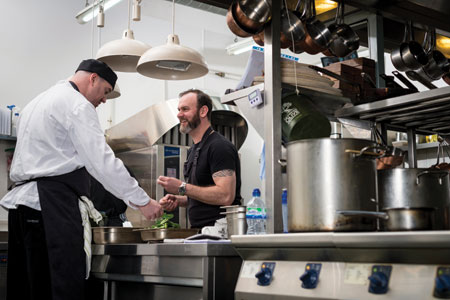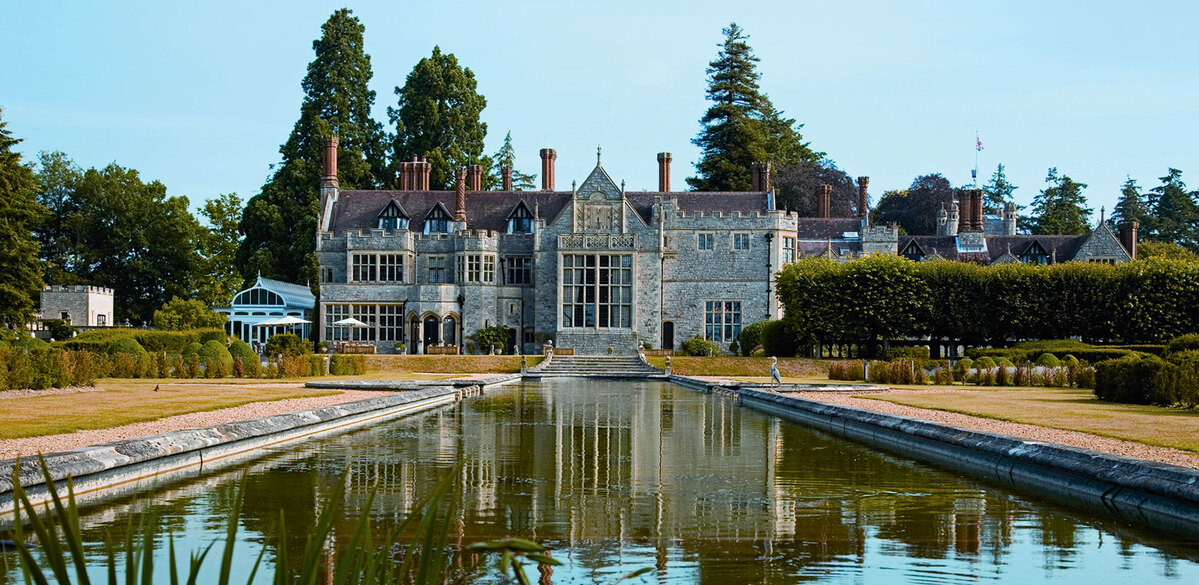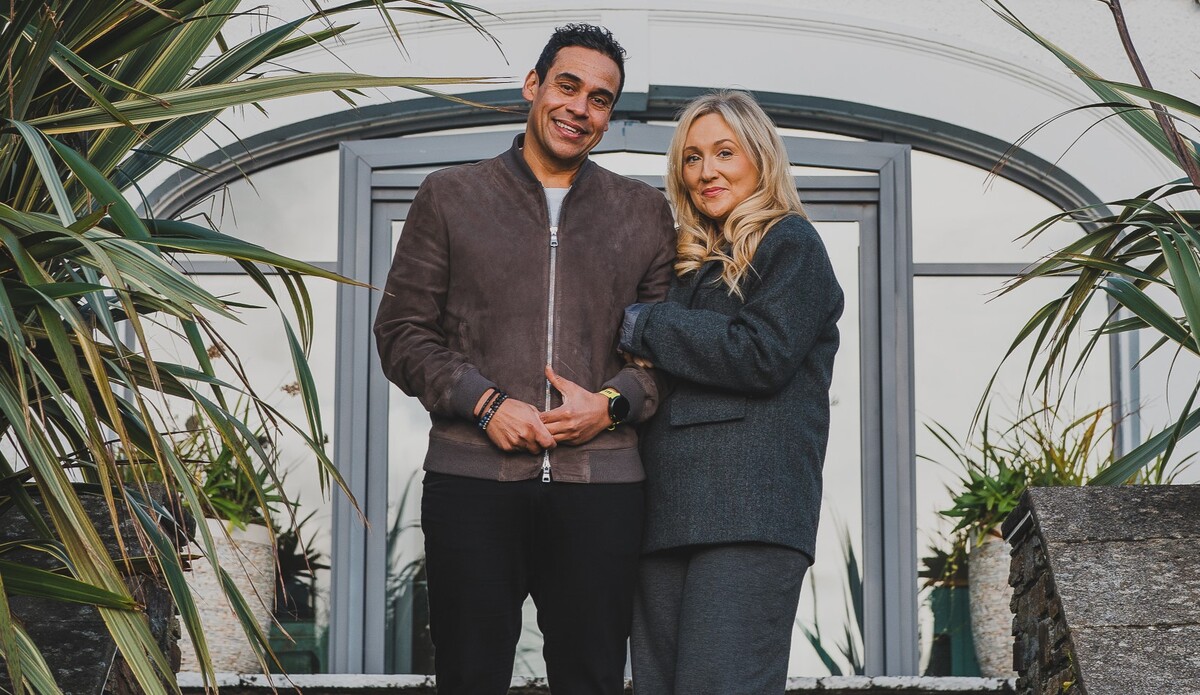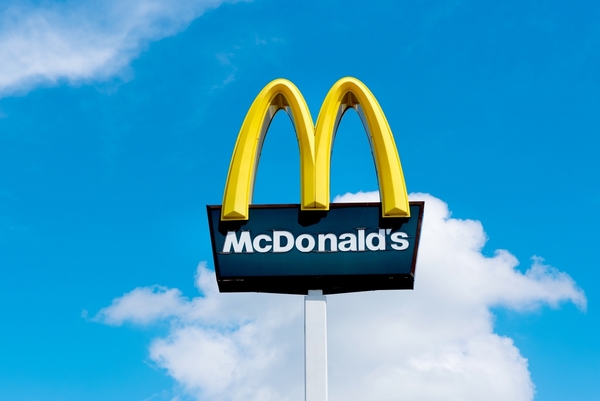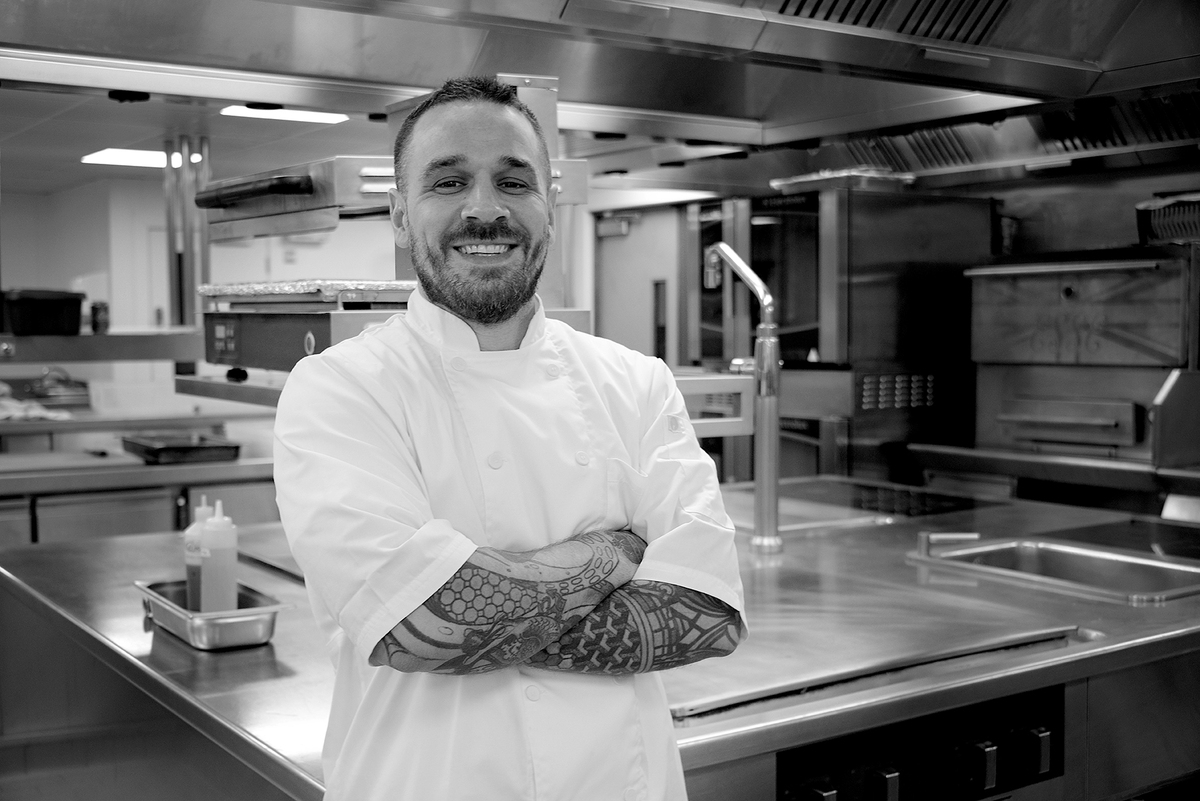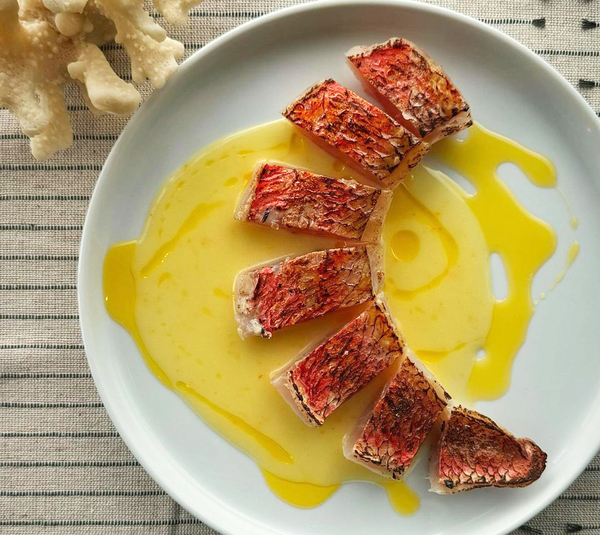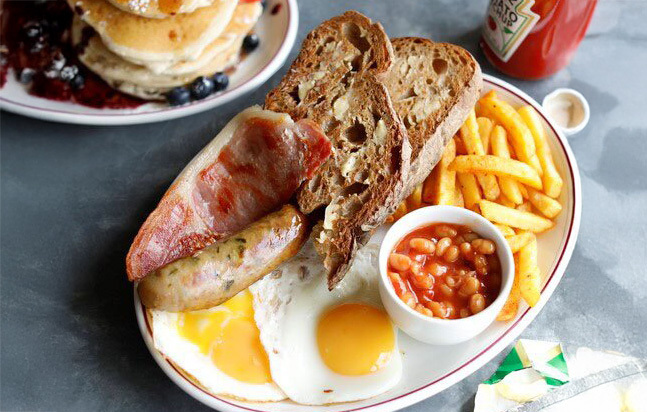Chef profile: Glynn Purnell
Birmingham's best-known chef, Glynn Purnell, is set to reach new heights when he opens a restaurant with Harvey Nichols in the city later this year. But his career as an independent restaurateur hasn't all been smooth sailing. He tells Neil Gerrard about some of the lessons he has learned along the way
In his strong Birmingham burr, Glynn Purnell addresses two slightly star-struck women who have just arrived at his restaurant with a "Hello ladies, is it your first time?" After welcoming them in and engaging them in a few minutes of good-humoured chat, he plonks himself back into a comfortable leather chair in the bar area and resumes his interview with The Caterer.
Purnell likes to fulfil the traditional role of the chef-patron and is just at home front of house, charming diners with his unique brand of Brummie banter, as he is in the kitchen.
He built this Michelin-starred restaurant in the city's Colmore Business District (CBD) on Cornwall Street up from scratch in 2007, right before the recession and without backers.
Subsequently he opened a second site, also ultimately successful. Not only that, but he has found time to carve out a niche for himself as one of the country's best-known TV chefs through appearances on Great British Menu and Saturday Kitchen among others. And now he is set to embark on a major new project in the city's Mailbox shopping centre with Harvey Nichols (see below). And all this in the year of his 40th birthday.
And yet, it is not the Harvey Nichols site that we are principally here to talk about today, because although the last two paragraphs make the arc of Purnell's career as a chef-restaurateur sound like smooth sailing, it has been anything but. In fact, Purnell knows all about the trials and tribulations of running an independent hospitality business.
Shy babies get no sweets
Itâs not for the faint-hearted though. Purnell is particularly fond of one phrase , which he employs repeatedly, and itâs this: âshy babies get no sweetsâ. He prefers to use it in the context of encouraging customers to be honest about what they want from a dining experience, and not to feel constrained by the choices offered on the menus in his restaurant.
But it could equally well apply to the way in which he has approached building his restaurant business â" and it would certainly appear that Purnell, who has been working in hospitality since he was 14, is no shy baby.
The idea to open Purnellâs came to the chef when he was working at the Michelin-starred Jessicaâs in nearby Edgbaston. He had a 20% stake in that restaurant and was closely involved in running it, but he still hankered after owning a restaurant that was truly his own.
âIt was the first time in 20 years of working in the industry that I felt comfortable,â he explains. âMe and my wife Kerry had a one-year-old son and I was earning a decent wage and had just bought my first house. And I woke up one morning and said to my wife: âRight, we are going to remortgage the house and open our own restaurantâ.â
And the capital he had to achieve this dream? The princely sum of £20,000. âI maxed out all my credit cards and begged, borrowed and bullshitted the rest of it,â he says.
âThe bank told me they would double whatever I had to help me open a restaurant. Well, you couldnât open a sandwich stand for £40,000, so I got a high-interest loan, put that with it, and then massaged the figures until I had £120,000. That still wasnât enough, so I told the builders and furniture guys I would pay them after the first month of trading.â
To fulfil his promise, Purnell needed £70,000 turnover in his first month, which he managed, and paid off some of his creditors. He survived this way until the rent-free period on the site he had taken ran out in January 2008. âThen the shit really hit the fan,â he says.
The magic of TV
Fortunately for Purnell, the producers of BBC TV show Great British Menu rang him and asked him if he would consider competing. It may have sounded like an obvious decision, but it was anything but at the time.
âI was stressed out; just breaking even. The business was there on a Friday and Saturday, but I was still trying to get the name out, so I told them I didnât really do television. I had the early-1990s attitude that what I did was cook, beat people up and swear. Itâs great that the chef world has come away from that.â
In the end, it was Sat Bains, who was one of the winners on the show the previous year, who told Purnell that he should compete. âI took his advice because I look up to people like him and Claude [Bosi],â Purnell says. âThe first year I did it was really difficult, because I actually cooked against Sat and he is a larger-than-life character and had won it the previous year, so I was shitting myself to be honest. Every time I did Great British Menu I had to close the restaurant because I didnât have enough people to run it without me, but as soon as it came on TV in April, the business just exploded.â And with a cheeky grin he adds: âOh, and I beat Sat, by the wayâ.
Turnover and takings at Purnellâs increased by two or three times and the restaurant started taking bookings months in advance. The television may have been a well-timed stroke of luck, but Purnell is convinced that in the main it was hard graft and self-belief that made his first restaurant a success. âYou have to not give up and believe in what you are doing, even when you are pacing up and down worrying about the fact you have got six booked and you have too many staff on,â he says.
âThe problem with some restaurateurs is that they decide they will do one thing and then they see another trend and flip to that. Donât follow fashions. Donât follow trends. Do what you believe in. That is what I stuck to when I opened Purnellâs and maybe the world wasnât quite ready for smoked haddock, milk and cornflakes, but now I canât take it off the menu.â
No Midas touch
With the success of the first restaurant came the temptation to open a second, which Purnell did when he took on the site of what used to be Jessicaâs in 2010 and turned it into the Asquith, offering a more accessible version of his cooking under staff who had previously worked for him at Purnellâs. It required little outlay to set up and should have been as successful as his first venture but, as Purnell bluntly puts it, âit fell straight on its arseâ.
Being on the other side of the city meant that Purnell was not able to keep as close an eye on it as he might have liked, and it wasnât long before food began to get wasted and customers arriving later in the evening were turned away, allegedly because some front-of-house staff didnât want to close too late.
Those problems were compounded by a dispute with the landlord Tony Gayden in 2011. Gaydenâs hotel/motel business Totel collapsed into compulsory liquidation and the water supply at the Asquith was turned off for non-payment of bills. Purnell lost his patience and the restaurant relocated to its current site in Newhall Street, where he ran it as the Asquith (with around 40 covers), with cocktail bar Gingerâs occupying the front half of the venue.
Unfortunately, the move didnât solve the problem. While the bar flourished, the restaurant faltered. The food was, by Purnellâs own admission, too fine dining, and pretty soon the business was losing £2,000 a month. âWe started paying the staffâs wages through Purnellâs and all of a sudden, all this capital that I had sitting in the bank started to disappear.â
Before long, Purnellâs bank (who he declines to identify) warned him that the Asquith and Gingerâs Bar were just six weeks away from going into administration. But then came the real hammer blow â" within another two months, the bank predicted, Purnellâs itself was in danger of going under unless the Asquithâs administration could be avoided.
âI thought bloody hell â" how has that turned so quickly?â Purnell muses. âYou walk round doing Great British Menu and Saturday Kitchen and you think youâve got the Midas touch. Then suddenly you realise that if you donât go back to the basics of buying an apple for a penny and selling it for four pence then youâre in trouble.â
While there were undoubtedly some aspects of what had happened that were not directly Purnellâs fault â" and he makes unspecified allegations of staff giving away too many free drinks, poor attitudes, and even in one case an individual skimming money from the till â" he admits that ultimately he was to blame. âIt was a massive mistake on my own behalf,â he says. âI made bad choices and managed it badly.â
**From the jaws of defeatâ¦
**With the clock ticking, Purnellâs accountants advised him to prepare to put the Asquith into administration when its VAT bill fell due, and in the meantime to concentrate on rescuing what he could to preserve Purnellâs. But he had other ideas. âI wasnât prepared to let it go. I said no, I will turn it around in six weeks. My bank manager looked at me like I was mad,â he recalls.
Calling in a few favours from builders who he had looked after in the past and taking out a £10,000 personal loan, the chef set about a wholesale change at the restaurant, giving it the Purnellâs branding and turning it into Purnellâs Bistro (while also keeping Gingerâs bar). Both his chef and manager left and he introduced a new team in the kitchen and took control of the opening service himself.
âIt wasnât the smoothest service I have ever been in, but I kept my cool and told myself this is it â" shit or bust,â he says.
Within six weeks, Purnell claims, the restaurant went from an £8,000-a-week turnover to nearly £20,000 a week. âThe turnaround was so dramatic that there was a real buzz about the place,â he says. âI listened to what people wanted. Customers wanted homemade Scotch eggs, little buckets of fresh-cut chips, big steaks, rustic food for a really good price.â
The other element he reinforced was the hospitality, which had been allowed to lapse, encouraging his staff to greet customers and ask them how they had been and what they had been up to.
âThat is what has changed dramatically about this industry,â he says. âPeople donât want a waiter with a dickie bow and a pickle up their arse. They want to connect and talk to them.â
The bank was suitably impressed and, according to Purnell, even sent one of the heads of its corporate banking division to see how he had done it.
âIt was a massive wake-up call,â Purnell admits. âI have learned so much about being a restaurateur from it. Everything I had learned from working under Andreas Antona and Claude Bosi came back to me and now I make sure we do our GPs every day. You are not untouchable and you can lose everything a lot quicker than you gained it.â
With those lessons learned and the bistro now showing solid year-on-year growth, Purnell is tempted to open another restaurant, has plans to release a second book (following 2014âs Cracking Yolks & Pig Tails) and his original restaurant Purnellâs is set to undergo a refurbishment. In the meantime, though, he gets up to resume his role as a traditional chef-patron, stopping off to chew the fat with a few more lunchtime customers before he heads back into the kitchen.
Working with Harvey Nichols
Purnell has collaborated with Harvey Nichols in Birmingham to create a new menu for its Harvey Nichols brasserie, set to open at the same time as the store in July this year. The brasserie aims to offer all-day luxury dining on the storeâs mezzanine floor and can be accessed via a sweeping staircase or a separate entrance after hours.
Purnellâs Harvey Nichols menu will also be available at a tapas-style chefâs table and in a private dining room accommodating up to 15 people, as well as at a communal table within the Harvey Nichols wine shop.
âThe main reason why they have spoken to me is because I have been doing it in Birmingham for 11 years and it is a different mentality here to London,â the chef explains.
Purnell does not plan to cook at the new restaurant, but is instead approaching the project on a consultancy basis; although he adds: âI am not going to turn into someone who has their name above everybodyâs door.â
Purnellâs restaurants
Purnellâs
55 Cornwall Street, Birmingham B3 2DH
Seats Dining room: 45, private dining: 12
Style A contemporary fine-dining restaurant, serving mostly tasting menus and occupying a Victorian building on Cornwall Street. According to the AA: âTechnical wizardry and diverting presentations are much in evidence, and the all-important element of modern cooking is borne in mindâ.
Dishes include Roast Brixham brill, white asparagus, fennel; slow-cooked Wiltshire Downlands lamb, basil emulsion; âMint choccy chipâ â" warm
chocolate, mint, aerated chocolate (£85 for the multi-course tasting menu). 1. purnellsrestaurant.comPurnellâs Bistro11 Newhall Street, Birmingham B3 3NY
Seats 85
Style Situated around the corner from Purnellâs, the bistro offers diners âhonest portionsâ of food, inspired by rustic home-cooking but with an eclectic
twist. It also features Gingerâs Bar, a cocktail bar inspired by Ginger Rogers and Fred Astaire, designed to reflect the glamour and style of the 1930s era.Dishes include Confit chicken terrine, chorizo mayonnaise, endive salad (£7); glazed pork belly, roast pak choi, Asian noodles (£17.50); and chocolate
cheesecake, amaretti biscuit, banana sorbet (£6.95).purnellsbistro-gingers.com  Latest video from The Caterer
Â



